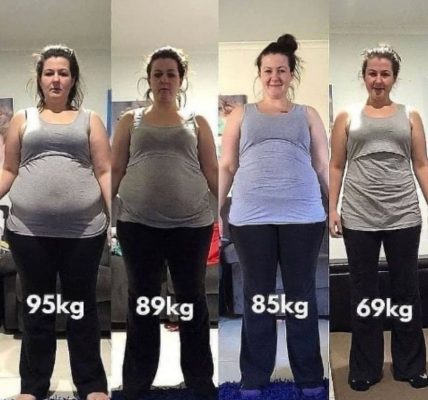In today’s fast-paced, hyper-connected world, maintaining mental health can feel like an uphill battle. Anxiety, stress, and burnout are increasingly common, affecting millions of people worldwide. But there’s a powerful, scientifically-backed tool that can help you navigate life’s challenges with clarity and calm: mindfulness.
Mindfulness is more than just a trendy buzzword — it’s a practice rooted in ancient traditions that has been shown to improve mental health, enhance emotional resilience, and promote overall well-being. In this longread, we’ll explore the connection between mental health and mindfulness, the science behind its benefits, and practical ways to incorporate mindfulness into your daily life.
The Mental Health Crisis: Why It Matters
Mental health disorders are among the leading causes of disability worldwide. Conditions like anxiety, depression, and chronic stress not only impact emotional well-being but also affect physical health, relationships, and productivity.
Key Statistics:
- Over 280 million people globally suffer from depression.
- 1 in 5 adults experiences a mental health disorder each year.
- Chronic stress is linked to heart disease, diabetes, and a weakened immune system.
The good news? While mental health disorders are complex and often require professional treatment, lifestyle changes — especially mindfulness practices — can play a significant role in prevention and recovery.
What Is Mindfulness?
At its core, mindfulness is the practice of being fully present in the moment, without judgment. It’s about paying attention to your thoughts, feelings, and surroundings with curiosity and acceptance, rather than reacting automatically or getting lost in worries about the past or future.
Mindfulness is not:
- Clearing your mind of all thoughts.
- A quick fix for life’s problems.
- Reserved for yogis or meditation experts.
Mindfulness is:
- A way to observe your thoughts and emotions without being overwhelmed by them.
- A tool to develop greater self-awareness and emotional regulation.
- Accessible to anyone, regardless of age or background.
The Science Behind Mindfulness
Decades of research have demonstrated the profound impact of mindfulness on mental health. Here’s how it works:
- Reduces Stress
Mindfulness helps activate the body’s relaxation response, reducing the production of stress hormones like cortisol. This lowers blood pressure, heart rate, and overall stress levels.
Study highlight: A 2013 study published in Psychosomatic Medicine found that an 8-week mindfulness-based stress reduction (MBSR) program significantly reduced stress in participants. - Improves Emotional Regulation
By observing thoughts and emotions without reacting impulsively, mindfulness strengthens the brain’s prefrontal cortex — the area responsible for decision-making and emotional regulation.
Study highlight: Research from Harvard Medical School shows that mindfulness can increase gray matter density in the prefrontal cortex, enhancing emotional control. - Alleviates Anxiety and Depression
Mindfulness-based cognitive therapy (MBCT) has been shown to reduce symptoms of anxiety and depression by helping individuals break the cycle of rumination and negative thinking.
Study highlight: A meta-analysis in JAMA Internal Medicine found that mindfulness meditation programs can be as effective as antidepressant medications for some individuals. - Enhances Focus and Cognitive Function
Mindfulness improves attention and concentration by training the brain to focus on the present moment, rather than being distracted by thoughts or external stimuli.
Study highlight: A study in Frontiers in Human Neuroscience found that just 2 weeks of mindfulness training improved participants’ working memory and focus.
The Benefits of Mindfulness for Mental Health
1. Reduced Symptoms of Anxiety and Depression
Mindfulness helps individuals recognize and accept their thoughts and emotions, reducing the impact of negative thought patterns.
2. Better Stress Management
By focusing on the present moment, mindfulness reduces the tendency to catastrophize or worry about future events.
3. Improved Sleep
Mindfulness can help calm a racing mind, making it easier to fall asleep and stay asleep.
4. Enhanced Self-Awareness
Mindfulness increases awareness of your thoughts, emotions, and behaviors, leading to greater self-understanding and personal growth.
5. Greater Emotional Resilience
Practicing mindfulness helps you respond to life’s challenges with greater calm and composure, rather than reacting impulsively or emotionally.
Practical Mindfulness Techniques
You don’t need to spend hours meditating to experience the benefits of mindfulness. Here are simple techniques you can incorporate into your daily life:
1. Mindful Breathing
Focus on your breath as it enters and leaves your body. If your mind wanders, gently bring your attention back to your breath.
- Try this: Set aside 5 minutes each day to practice mindful breathing.
2. Body Scan Meditation
Bring awareness to different parts of your body, starting from your toes and moving up to your head. Notice any sensations, tension, or discomfort without judgment.
- Try this: Perform a body scan before bed to relax and release tension.
3. Mindful Eating
Pay attention to the taste, texture, and aroma of your food. Eat slowly and savor each bite, noticing how your body feels as you eat.
- Try this: Practice mindful eating during one meal each day.
4. Gratitude Practice
Take a few moments each day to reflect on things you’re grateful for. This shifts your focus from what’s lacking to what’s abundant in your life.
- Try this: Keep a gratitude journal and write down three things you’re grateful for each night.
5. Mindful Walking
Focus on the sensation of your feet touching the ground, the rhythm of your steps, and the sights and sounds around you.
- Try this: Take a short mindful walk during your lunch break.
Overcoming Common Mindfulness Challenges
“I don’t have time for mindfulness.”
- Start small. Even 2-5 minutes of mindfulness can make a difference.
“I can’t stop my thoughts.”
- The goal isn’t to stop thoughts but to observe them without judgment.
“I don’t feel any different.”
- Mindfulness is a practice. Consistency is key, and the benefits often become apparent over time.
When to Seek Professional Help
While mindfulness is a powerful tool for improving mental health, it’s not a substitute for professional treatment. If you’re struggling with severe anxiety, depression, or other mental health issues, consider seeking help from a therapist or counselor.
The Bottom Line
Mindfulness is a simple yet transformative practice that can improve your mental health, enhance emotional resilience, and bring more peace and joy into your life. By dedicating just a few minutes each day to mindfulness, you can cultivate a greater sense of well-being and navigate life’s challenges with grace and clarity.
Remember: Your mind is your most powerful tool. Treat it with care.








